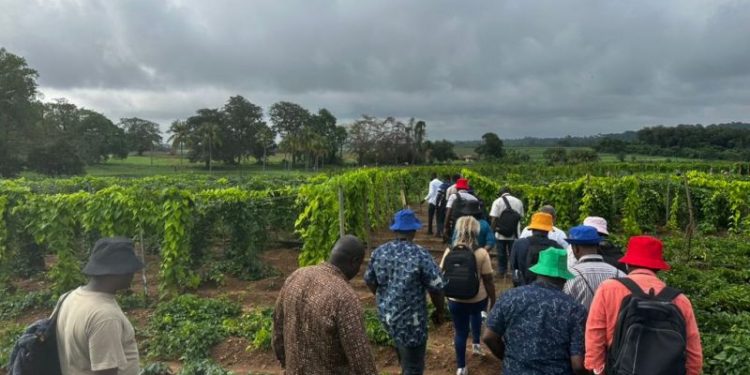How the CGIAR’s Mechanization Improvement Project is Streamlining Crop Breeding for Better Yield
The introduction of advanced mechanization into crop breeding programs is revolutionizing precision and efficiency in agriculture, and the potato industry stands to benefit significantly. The CGIAR Genetic Innovation team, through its Facilities Upgrade and Mechanization Improvement Project funded by Deutsche Gesellschaft für Internationale Zusammenarbeit (GIZ) GmbH, is driving this change by providing key equipment and technical expertise to breeding stations worldwide. This initiative, part of the Crops to End Hunger (CtEH) program, aims to streamline the breeding process, making it more data-driven and precise.
From September 23rd to 27th, the International Institute of Tropical Agriculture (IITA) in Nigeria hosted a specialized maintenance workshop focused on enhancing the functionality of mechanized trialling and nursery operations. This event brought together breeders and technical staff from CGIAR Centers and National Agricultural Research and Extension Systems (NARES) to address common challenges faced by breeding stations that have received mechanization support under the CtEH program.
A key goal of the project is to ensure that CGIAR Centers and partner institutes can sustain these upgrades long after the initial investment. The workshop provided practical solutions for obtaining technical support, sourcing spare parts, and identifying reliable service providers. By developing long-term maintenance strategies, these centers can ensure that the advanced equipment continues to deliver high-impact results, improving potato yields and breeding efficiency for years to come.
Participants explored topics like coordinating maintenance across various functions, finding cost-effective solutions, and maximizing the cost-benefit ratio of proper equipment maintenance. This approach will not only extend the life of the equipment but also optimize the breeding process, allowing researchers and agronomists to focus on the science of improving crop varieties rather than operational hurdles.
With mechanization enhancing trial accuracy, potato breeding efforts across the globe are set to become more efficient and responsive to both market demands and environmental challenges. The CGIAR Genetic Innovation team’s commitment to mechanization in breeding represents a significant leap forward in the future of global food security and agricultural sustainability.







